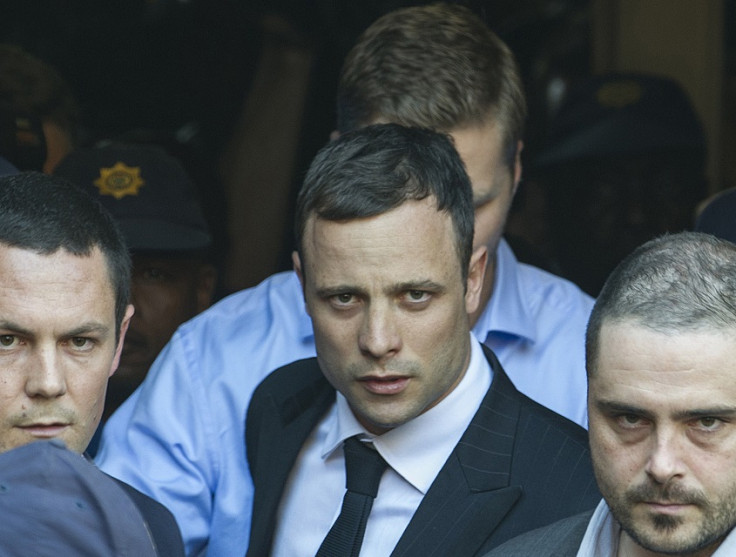Oscar Pistorius: Three Things We Learned on Trial Judgment Day One

Pistorius is not going to jail for murder:
Since the fateful night on Valentine's Day last year, there has been an army of commentators in the press and on social media who have gleefully pronounced Pistorius to be guilty as sin.
Well, the only person whose opinion counts here obviously disagrees, having weighed up all the evidence.
Finding Pistorius not guilty of premeditated homicide, Judge Thokozile Masipa said: "The state has not proved beyond reasonable doubt that the accused is guilty of pre-meditated murder."
She said the facts weighed against Pistorius intentionally killing Reeva Steennkamp in the certain knowledge it was her behind the toilet door of his luxury home in Pretoria.
But anybody watching proceedings could see Pistorius's reaction to being cleared of murder was hardly the unbridled joy of one who has beaten the rap and regained his liberty.
Here's why.
Pistorius is unlikely to secure a clean sweep of not guilty verdicts:
Having found him innocent of murder, the judge must decide if he is guilty of culpable homicide – a type of manslaughter.
It has not been good news for the man in the dock on this count, so far. As things stand after day one of the verdicts, there seems a very real possibility of jail time for Pistorius.
Masipa has listed reasons why Pistorius failed a "reasonableness" test, hinting that she feels him to be at least partly culpable for Steenkamp's killing. Culpable homicide operates on a sliding scale of up to 15 years, depending on the degree of culpability.
Masipa's condemnation of the fallen star's behaviour is in line with public opinion, which has been broadly against Pistorius during the trial. A popular sentiment is that a woman is dead, so how can it possibly be that nobody might be found responsible?
Well, Pistorius' defence would have it so. Barry Roux argued - for £5,000 a day - that his client was not culpable because his disability made him especially fearful and vulnerable. But this line failed to pass muster with judge Masipa, which leads to a gloomy prognosis for Pistorius.
There is also the matter of the firearm charges, which have not yet even been touched upon in the judgement. Each one of the three counts carries a custodial tariff and Pistorius struggled to explain them during his fraught spells at the witness stand.
Judge Masipa has no regard for courtroom drama:
The way Masipa has delivered her judgement so far has contrasted sharply with events of the trial, which were characterised by theatrical and emotional outbursts at every turn.
Those who expected a tense situation were disappointed. Trial watchers had probably been hoping for the judge to deliver her verdict, following a dramatic pause, before a enrapt courtroom.
Instead, Judge Masipa has burying her murder verdict in reams of discourse about close details of the evidence. It seemed at times like a deliberate bid to puncture the drama attached to the occasion.
Recall prosecutor Gerrie Nel and defence counsel Roux taking swipes and exchanging blows, while Pistorius himself bawled his way through the ordeal, pausing on occasion to vomit into a bucket.
All in all, judge Masipa's sober delivery and scant regard for courtroom drama may be a necessary redressing of the balance toward seemliness.
However, she did adjourn proceedings when apparently on the point of delivering the culpable homicide verdict, which left things on a cliff-edge. So perhaps judge Masipa possesses a canny sense of drama, after all.
© Copyright IBTimes 2024. All rights reserved.






